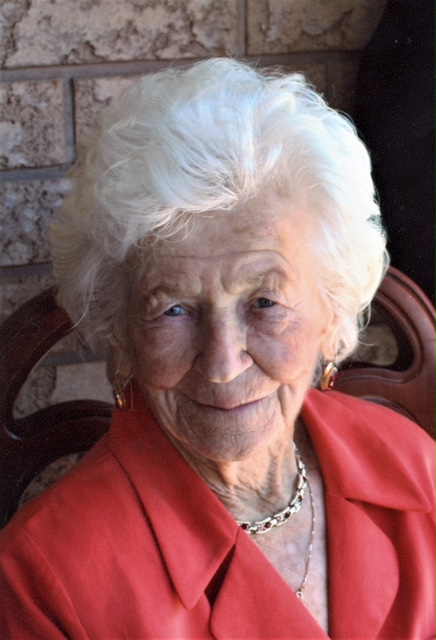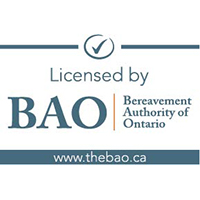Obituary
A Life Lived
Fenna (Kapeluch) Kordan
Wife. Mother. Grandmother. Survivor. Born on April 6, 1918 in Vyslik Velykyj, Galicia, Austro-Hungarian Empire; died December 13, 2020, in Toronto, under COVD conditions.
Fenna Kapeluch was born in the Carpathian mountain village of Vyslik Velykyj during the 1918 flu pandemic, the end of the Great War, and the dissolution of the Austro-Hungarian Empire. The daughter of Chrystyna (Drozd) and father Andrij, she was one of eleven children. Compelled to work as an itinerant worker at a tender age because of poverty, she was left unschooled. However, she was not without a book or pen in life, having learned, unaided, to read and write through strength of will and purpose.
Fenna would marry before the onset of the Second World War. The German invasion of Poland introduced turmoil to her life. She would lose her husband to war, who was seized by Nazi authorities and sent to a concentration camp. She was transported as forced labour to Germany and, from there, taken to Austria. Alongside French prisoners of war, she was compelled to work as an agricultural worker on a farm near Klagenfurt, Austria, labouring for four years under harsh and trying conditions.
Fleeing at the end of the war from servitude, Fenna returned to her mountain home on the Polish-Soviet frontier. There she found chaos, the result of conflict between the anti-communist Ukrainian insurgency and government forces. The conflict led to untold suffering among the population, culminating in the forced resettlement of the local Ukrainian inhabitants by Soviet and Polish authorities who sought to defeat the rebels this way. In the cycle of violence that ensued, in her arms, Fenna’s mother would die of starvation. Fenna would flee and take refuge in the mountain forest wilderness, making her way eventually to Czechoslovakia and onto Western Germany. In 1948, she would migrate to Canada as a displaced person.
The memory of conflict was never far away, shaping her worldview, state of mind, and personality. Nevertheless, despite the cruelty of war, she sought normalcy. Fenna remarried (Andrij), made a home, raised children (Olga [and Henry]. Bohdan [and Bohdanna]) and cherished her grandchildren (Nicholas [and Hung Chiu], Olena [and Daniel], Christian). She took great comfort in family, speaking lovingly and with admiration of their achievements. She valued her garden, delighting in dahlias and going gaga over geraniums. The munificence of her vegetable harvest served to remind her of the bounty and richness of life.
Fenna took pride in the dignity of work: first, as a nursing assistant at St. Joseph’s Hospital in Toronto, but then, wanting freedom in work, chose to be a domestic. Cultural identity was also dear to her. She celebrated holy days and family gatherings with the dinner table groaning under mounds of Ukrainian food – borscht, holubtsi, varenyky, patychky. As a believer, she kept her faith close by, never losing sight that through God’s love we might find peace and salvation. Widowed for thirty-four years, she knew loneliness, but found strength in her perseverance and accomplishments. She maintained her garden until she was 98 years of age and lived alone in her home until 99. At 102 years of age, she survived an operation on her broken hip, but not the isolation of the pandemic – the second in her life.
In the end, Fenna was disciplined, uncompromising, and even fearless in her approach to life. Above all, she believed that no matter how simple her life, her life was deserving of respect. When she received restitution from the government of Austria for her mistreatment during the war, she gave the money away. What she simply wanted was for there to be a record and an acknowledgement of what happened; to have others know that she mattered – that, in fact, we all mattered.
We bow our heads before her in remembrance and with love and respect.
“Due to the current pandemic restrictions and under direction from our regulator, the Bereavement Authority of Ontario, effective November 14, 2020 all funerals and visitations will be by invitation only to limit the number of people in attendance and prevent the spread of COVID-19. We encourage those that are unable to attend in person to express their sympathy by posting a message of condolence to our website and or, donating to the charity."





